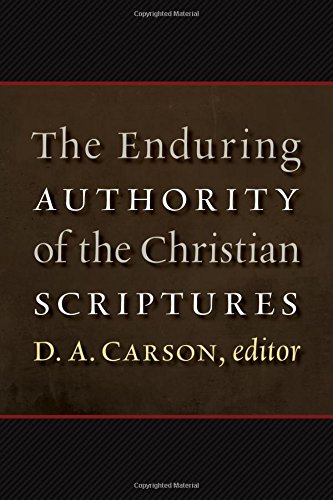A Brief Book Summary from Books At a Glance
Editor’s Note: Today we continue our series of “bonus” summaries covering all thirty-six chapters of the monumental volume, The Enduring Authority of the Christian Scriptures (D.A. Carson, ed.).
Chapter 16: God and the Bible
by Peter F. Jensen
(Summarized by Mark Coppenger)
Jensen, the former Anglican archbishop of Sydney as well as the former principal of Moore Theological College, advances William Tyndale’s high view of Scripture as the Word of God (“the classic ‘Scripture principle,’ that the Lordship of God is expressed in his inspired, inscripturated word”) against a range of scholars who feel they must “reconstruct” the doctrine of revelation to make the Bible more palpable to critics. And so he writes in response to Edward Farley and Peter Hodgson, who say that the “house of authority has collapsed” since the Enlightenment; C.H. Dodd, who says a literal reading taints God’s character by giving him credit for unsavory thoughts and deeds more properly attributed to the flawed characters who wrote the Bible; Emil Brunner, whose “Christological” approach relegates the Bible to lesser status below the “real” revelation in Jesus; John Macquarie, who declares that “scripture itself is not revelation,” but that it only “comes alive” in “the living context of the Church.”
Against these “helpers,” he argues that his “classical” view is simply replicating the attitude of Jesus and the apostles, who treated the writings of the Old Testament as God’s Word. And it’s clear that the fulfillment of prophecy/promises ties the canon together, inseparably. (In this connection, Jensen expresses dismay at the popular expression, ‘Hebrew Scriptures,’ which implies that they may be detached from the Greek Scriptures.)
He argues that our encounter with Jesus comes through “the medium of words, words that themselves come in sentences, assertions, propositions, promises, exclamations, interrogations.” And the fit with our nature is. . .
[To continue reading this summary, please see below....]The remainder of this article is premium content. Become a member to continue reading.
Already have an account? Sign In
